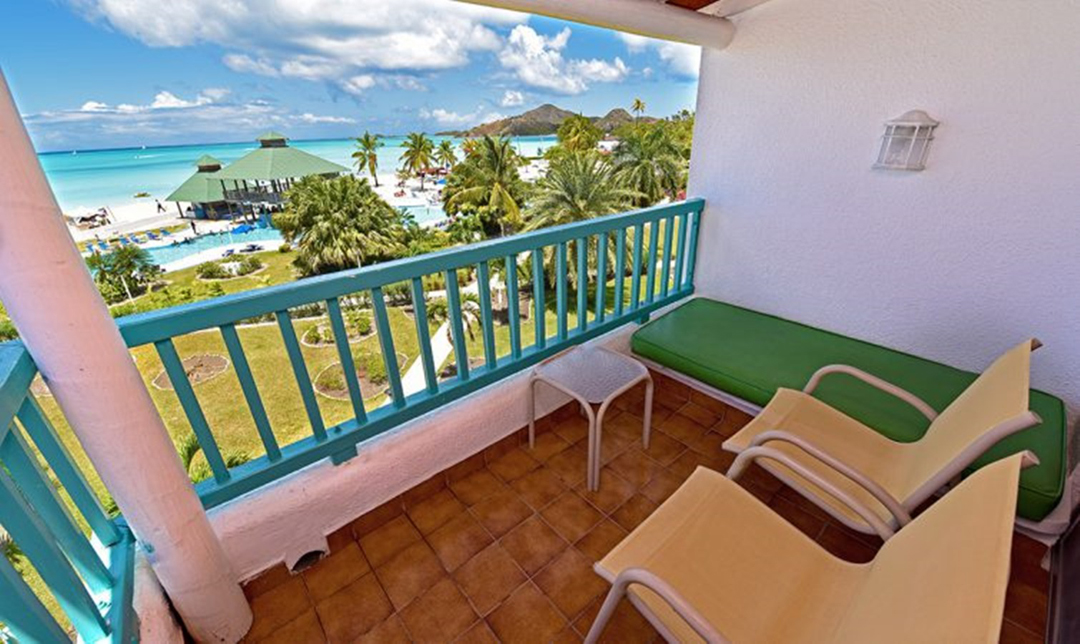By Elesha George
The sudden closure of the hotel sector as a result of the Covid-19 pandemic has exposed the disparity among people who may work at the same establishment, but live different lifestyles.
The Starfish Jolly Beach Resort has been closed since March and the government is scurrying to get a new investor in the hopes that it may save the jobs of about 500 people.
Two mothers are among the hundreds of people who were once employed at one of the largest hotels in Antigua. Both women are now victims of the closure, but to a different degree.
Mother # 1 who has a six-year-old boy, although facing her own struggles, has been getting assistance from her family and close friends and has been able to carry on with her life despite a number of challenges.
The former front desk worker has the support of her child’s father who is ensuring that the boy continues to have a good private school education, while she hustles to keep food on the table, pay her rent and her outstanding utility bills.
“It’s been rough. Right now I’m behind on my rent … When I get any funds I pay my light and my water,” she said.
“Some friends, some family will reach out to me and some days I’m telling you it’s hard. Other days, as long as I can go to bed and have something to eat, it’s fine,” she explained.
The 11 years she laboured at the hotel isn’t reaping the intended rewards since no severance, back pay, vacation pay, or even money that was being deducted for a thrift fund since 2010, have been forthcoming.
“It’s like a savings so they take a certain amount of money from your pay every two weeks that goes to a retirement fund to the bank. We used to get statements every two weeks or every month, but it’s been years since we have received a statement,” she explained to Observer.
Whatever funds were left at the bank for the thrift fund are now being intermittently disbursed to employees, but the former front desk worker said they are still owed from the full amount deducted.
There is no doubt that Covid-19 has hit her household hard but perhaps not as hard as the visit it paid mother # 2.
The mother-of-three had just started a new job as a waitress and a hostess at the resort, five months before the nationwide lockdown in March.
Today, she works three days a week as a security guard and barely has enough money to put food on the table, to pay rent, or to provide snacks for her young children who attend public school.
She said she has been actively searching for a permanent job, but business places have been held hostage by the pandemic.
The burden on her is further compounded because she has to take care of her three children alone. The father of two of her children was gunned down at his Potters home in mid-March and she has no family support in Antigua.
She told Observer, “I went to Social Security to see if I could have gotten some form of assistance from them. They made me do everything but every time I would go back to them they would say that government don’t have no money.”
The Dominican national said Social Security told her that there was only a one-time cheque that they could give to assist her children, but still several months later they have not disbursed the funds that could be the difference between whether she and her children have a meal each day.
“It’s been very rough but I’m trying. I’m holding on,” she declared.
Both women remain positive; much like mother # 3 who is the grandmother of two children and takes care of a disabled family member.
She has seniority over the two other women, having worked in the Reservations Department at Jolly Harbour for 19 years.
“Nineteen years of sacrifice, working without getting overtime. How many times you’ve worked overtime and they come and tell you they can’t pay you? How many days they called you in and tell you to come in to work and when you get there they say they can’t pay you, they have to give you back a day?
“In 2008, we made a lot of sacrifice, getting one week’s pay in a month and we still go to work. It was hard; sometimes you have to beg people money to pay bus, you have to beg some money to put gas in your car because you don’t have it, just so you could go to work for the day.
“So, it’s a lot of sacrifices that we made down there and I’m just disappointed in how hard it is now to get our severance,” she told Observer.
She now has no income coming in and lives at the whims and fancies of social programmes – a reality she said which sometimes brings her to tears.
“To be honest, sometimes I just sit down and cry because there are bills to pay. We pay the bills but we cannot pay in full; you just have to pay something on it you know, just to keep it down,” she shared.
The family depends solely on the invalidity cheques from Social Security and the PDVSA card voucher that are issued to the disabled family member. She said the money from Social Security pays the bills, while they try to live on the food vouchers provided by PDVSA.
All three women are hopeful that once a new investor for Jolly Beach Resort has been identified, they will be able to receive at least some of the monies owed to them, to ease the strain they are now feeling.
The government expects to finalise a US$33 million deal with a Canadian company to take over the operations within a few days.

